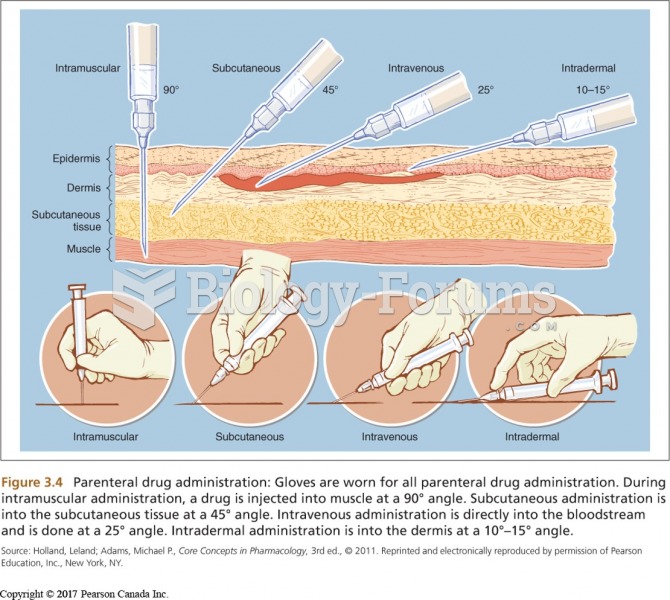|
|
|
Blastomycosis is often misdiagnosed, resulting in tragic outcomes. It is caused by a fungus living in moist soil, in wooded areas of the United States and Canada. If inhaled, the fungus can cause mild breathing problems that may worsen and cause serious illness and even death.
Eating food that has been cooked with poppy seeds may cause you to fail a drug screening test, because the seeds contain enough opiate alkaloids to register as a positive.
Though the United States has largely rejected the metric system, it is used for currency, as in 100 pennies = 1 dollar. Previously, the British currency system was used, with measurements such as 12 pence to the shilling, and 20 shillings to the pound.
Today, nearly 8 out of 10 pregnant women living with HIV (about 1.1 million), receive antiretrovirals.
Vaccines prevent between 2.5 and 4 million deaths every year.
 GI series. (a) Upper GI series begins with a barium swallow, barium shake, or barium meal. (b) Lower
GI series. (a) Upper GI series begins with a barium swallow, barium shake, or barium meal. (b) Lower
 New England children like David, Joanna, and Abigail Mason (painted by an unknown artist around 1670
New England children like David, Joanna, and Abigail Mason (painted by an unknown artist around 1670





